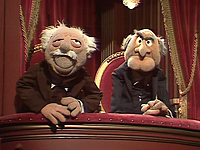Concurrent to the game's initial release, there were dozens of WotC articles focused on breaking out the premise, purpose, and mechanical functionality of Skill Challenges. All of those comported with my initial thoughts when reading about their inclusion; "A Unified Conflict Resolution framework to establish stakes, resolve the conflict, be determinative of the outcome of what is at stake, and guide/propel follow-up conflicts (a la DitV)." The only thing (as I noted above) that gave me pause was "why did they miss the opportunity to grant XP for failure exclusively, rather than granting it for success?" I was puzzled by that. There are many mechanisms at work to functional Story Now play and what I've outlined above regarding conflict resolution is pretty close to SoP. However, in most of those systems, character progress/evolution comes from certain failure conditions. XP exclusively rewarded for failure in Skill Challenges would have had a few advantages:
1) It may have reduced certain groups' apparent propensity for having to deal with "bad-faith" attempts at leveraging Skills that are mismatched with the current fictional positioning. However, it also may have done nothing as if those "bad-faith" players were only interested in "winning the stakes" rather than "winning the XP", obviously no change would have occurred. Respect for fictional positioning by a singular player, the group as a unit, and/or demand for respect of fictional positioning by GMs (fictional positioning or genre credibility test - hat tip @
pemerton for language) can only be driven so far by system impetus. If you want to Step On Up and disregard the fictional positioning, you can do it with almost any game engine (obviously some make it mostly or completely dysfunctional/prohibitive).
2) It would have been a legitimate piece of system machinery that drove character evolution of Big Damn Heroes by way of thematic setback, fallout, failure, loss, and adversity. It would have then fed back naturally into the Quest System, setting up the heroic comeback to address/avenge the loss endured, right the wrong, or perform the rescue in the nick of time, etc.
So after that wee bit of analysis, I hope we're all in agreement what a simple change such as that has ramifications to a system and the play it engenders at the table (Later, they revised XP to be earned on both success and failure of Skill Challenges...but this also doesn't have the same potential effect upon play as XP exclusively upon failure). I'm curious as to what @
innerdude 's, @
Imaro 's, and @
Ratskinner 's thoughts would have been, personally, if XP on Skill Challenges would have been rewarded exclusively upon failure. Further, if you guys could try to extrapolate what the majority cross-section of the greater D&D culture may have initially thought if that was the case.




